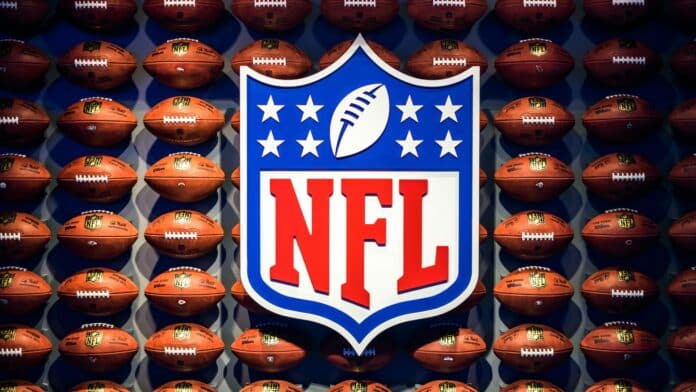After the 49ers’ predicament in the NFC championship game, the NFL authorizes a rule modification permitting teams to designate ’emergency’ quarterbacks.
Yet again, a high-profile event was sufficient to prompt a rulebook revision in the NFL.
Fans who watched the NFC championship game in January were left wondering how the San Francisco 49ers would continue when quarterback Brock Purdy tore the ulnar collateral ligament (UCL) in his throwing elbow and backup Josh Johnson was declared out with a concussion. Both injuries occurred during the game.
The bylaws of the NFL will be changed on Monday afternoon at the meetings of the owners in May so that the next club that finds itself in this predicament will have more quarterbacking options.
In the National Football League (NFL), clubs may now formally designate a third quarterback rule who is not currently active but will participate in games if the active quarterbacks are unable to do so.
According to the wording of the bylaws, the third quarterback will not engage in the game unless and until the two quarterbacks who are now active suffer an injury or are disqualified for some reason and are unable to continue playing.
And the quarterback has to be taken out of the game if any of the other two quarterbacks who are active can get back into the game. It is against the rules to keep playing at another position after being moved.
The conditions are quite stringent, making it very improbable that they will be met on a regular basis. According to the terms of the bylaws, a coach is not allowed to employ this leniency because of the player’s performance or behavior.
When clubs turn in their active and inactive players lists ninety minutes before the start of each game, the emergency quarterback will be chosen.
Jerry Jones, the owner of the Cowboys, said in February to Yahoo Sports that the league “cannot ignore when we have a team that has gotten short at quarterback.” Jones was referring to the situation in which a team is without a quarterback.
Jones said that having instances at “very sensitive times” is the “best way to make decisions” when it comes to modifying regulations that have an effect on the results of the playoffs. “That’s the best way to get going and the best way to take decisions,” Jones added. “And boy, we don’t want teams without quarterbacks in these games where 50 million people are watching,” the official said. “And boy, we don’t want teams without quarterbacks.”
During the height of the COVID-19 epidemic, rule changes to the roster often occurred, which altered the requirements for both the practice squad and the active game day roster.
It was a requirement of the National Football League (NFL) for clubs to have on their game-day roster an emergency third quarterback who, if used before the fourth quarter, would render the team’s first two quarterbacks unable to play for the remainder of the game. This rule was in effect from 1991 until 2010.
Following that, the league did away with the regulation and instead increased the number of players allowed on game-day rosters from 45 to 46. Teams were no longer obligated to have supplementary depth at quarterback. Instead, they were given the freedom to decide whether they were interested in continuing carrying three quarterbacks or using the roster space to add depth to another position, such as lineman, where injuries are more likely to occur.
Since Monday’s rule change, clubs are no longer compelled to designate a third quarterback rule, but they are permitted to do so without the designation affecting any of their other roster positions.
When a team already has three quarterbacks on its game day active roster, they are not allowed to designate a fourth quarterback as an emergency inactive option.


